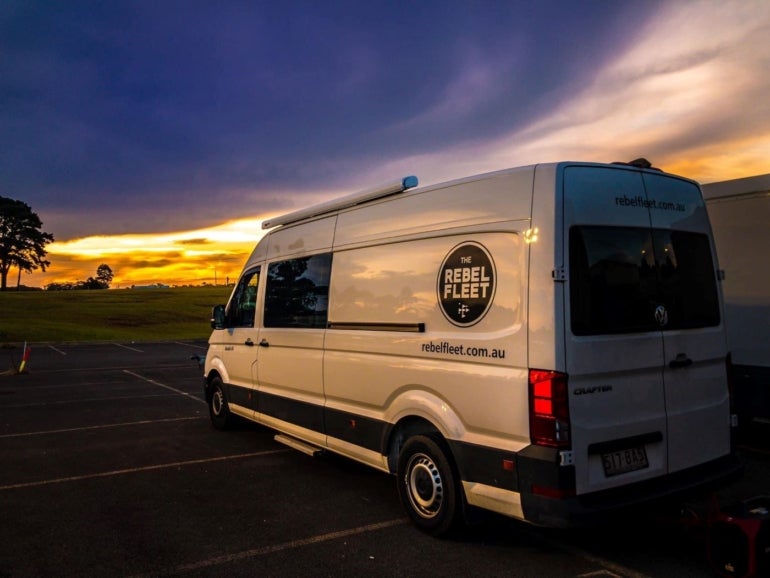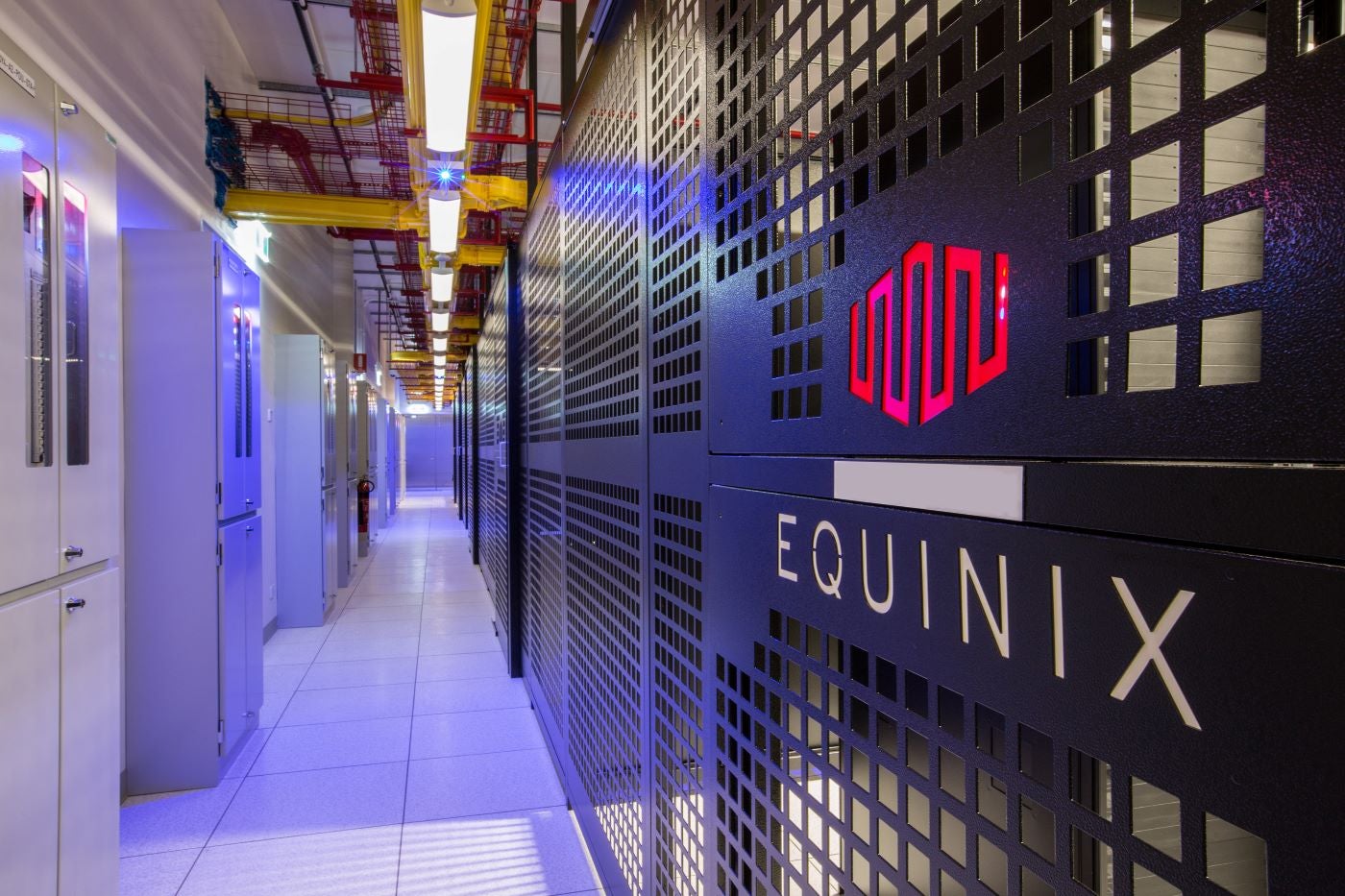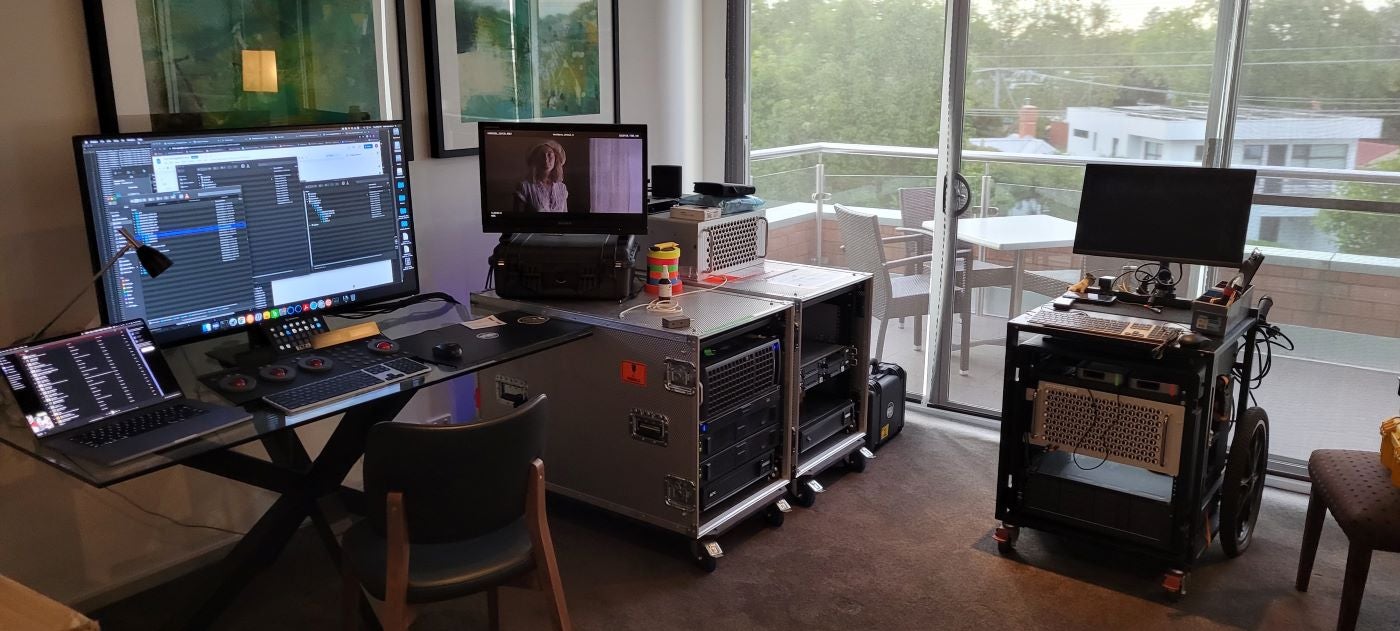
The Kingdom of the Planet of the Apes trailer was released by Disney’s 20th Century Studios in November 2023. The latest instalment in the hit Planet of the Apes franchise, it has been “causing excitement” for fans and others, said Michael Urban, CEO of The Rebel Fleet.
No one would be more excited than Urban’s team. Shot in Sydney and NSW in Australia, The Rebel Fleet was the film production partner charged with managing all of the data and daily processing for the film, making it a critical piece in its local and global production process.
As Urban tells TechRepublic, data centre infrastructure underpins its operations. Data centre infrastructure allows the business to deliver terabytes of data with speed and consistency, while allowing it to remain agile enough to scale up and down in different film shoot locations.
Jump to:
Film production speeds are now faster with digital connectivity
The Rebel Fleet launched in New Zealand in 2015. Since then, it has worked with Netflix, Disney, Warner Brothers, Amazon and others on works such as Mulan and Lord of the Rings: Rings of Power in both Australasia and in other locations in the region.
The thing that has changed most during that time for The Rebel Fleet is the need for speed.
Michael Urban, CEO of The Rebel Fleet

“Connectivity has exponentially ramped up in the time we’ve been around, and it will only continue to increase in the future with the likes of Starlink,” Urban said. “What that means is the expectation around speed is that it should become much faster and faster.
“Whereas you used to be able to say, ‘We have to drive two hours to get the footage to the editor,’ or ‘We need to ship the master files from Sydney to LA,’ now the ability to transfer media in a faster way is there. The expectation then becomes, ‘Why can’t I have it now?’”
The Rebel Fleet needs to battle bottlenecks with bandwidth
Data centres are critical to enabling that speed. With The Rebel Fleet often handling the transfer of terabytes of data every day, one key problem data centres help to solve is ensuring there are no data transfer bottlenecks during the shooting of a big film or TV production.
“If a client wants all the master camera files transferred to the cloud or transferred to their own storage across a network, we have to be careful of not running into a bottleneck because they will be shooting five or six days a week for 100 days on a big movie or TV series,” Urban said.
The Rebel Fleet often transfers about 4TB of data a day during such a production. Urban said, “you can’t have a system which is going to take 30 hours to transfer that 4TB of data because the next day you have another 4TB of data, and the day after, you might have 6TB.”
SEE: Data centre outages are putting Australian data at risk.
Data transfers an important part of the production puzzle
Every shoot The Rebel Fleet works with has different requirements. Each client may have different needs, including where the media needs to go, who is going to need access to it, how quickly they need access and what they are willing to spend to make it all happen.
The Rebel Fleet’s role is to be the “piece of the puzzle” that gets media to its destination.
“Where we come in is we are the bridge between production and post-production,” Urban said. “The question is how do we get it from the camera into wherever it needs to in whatever format it needs to go and ensure that we do that in a cost-effective and timely manner?”
Data centres helping to make movies and TV shows possible
The Rebel Fleet has existing infrastructure in Auckland, where the company was launched and has an office. Recently, it chose to deploy in Equinix’s International Business Exchange in Sydney, which will act as a hub for its operations in Australasia, APAC and globally (Figure A).
Figure A

Equinix is also providing The Rebel Fleet with on-demand access to high-bandwidth low-latency fibre, security and colocation, as well as the ability to connect to digital ecosystems, including all of the major cloud service providers it needs to service its clients.
Urban said one advantage of the new Equinix hub in Sydney will be when shooting in Australia.
“If we wanted to spin up a data centre in Brisbane or Melbourne, we could do that and connect that into our network,” Urban said. “Or if we have an office in the Gold Coast, we can connect that into the data centre, and the data centre becomes the hub, and the spokes are connected to that.”
Bandwidth reliability
Data centres are what provide The Rebel Fleet with “good, reliable and consistent bandwidth” for high volumes of data.
“We need to be able to do the maths on that, saying, ‘We know we’re going to maintain about 5 gigs a second on average, plus or minus 5%,’” Urban said.
While the end client will also depend on the connections available at the other end, Urban said “at least we know that, within our network, we can maintain that consistency. Because if we’re having to deal with contention, that throws a whole lot of unknowns into the mix.”
Load sharing
Being able to connect other data centres into its central hub in Sydney means The Rebel Fleet can load share infrastructure across Australasia.
“We won’t need to go and get all we have in Auckland — which is a lot of money — and put that into Brisbane for three months,” Urban said. “What we can do is we can share that sort of load around, depending on what we need at the time, and that creates cost efficiencies for us and, therefore, our clients as well as time efficiencies. We can work much smarter effectively.”
Cloud connectivity
The Rebel Fleet also requires direct cloud connectivity. The industry as a whole is pursuing a MovieLabs 2030 vision that will see it migrate to the cloud. This will see camera media, as well as software providers and vendors, all eventually working together from the cloud (Figure B).
Figure B

“That is where the industry is heading to — working off the cloud,” Urban said. “There will be challenges, and it will get implemented in different ways, but the question is ‘How do we get the information from the camera into the cloud as fast as possible?’ One of the ways is through data centres.”
SEE: Rapid data growth has Australian enterprises rethinking their cloud strategies.
Location scalability
The Rebel Fleet’s access to data centres close to shooting locations is important. Being able to spin up the infrastructure where needed on demand and distribute media as per production requirements means the business does not need to build or install infrastructure itself.
“Our industry as a whole is really transient, so having a sort of diversification of where we are enables us to be nimble,” said Urban. “It’s really important where we can go to where it’s happening in our business, because we don’t necessarily always have everything come to us.”
The Rebel Fleet’s data challenges shared by other industries
Guy Danskine, managing director of Equinix Australia

Guy Danskine, managing director of Equinix Australia, said one of the major challenges faced by The Rebel Fleet and the industry is the amount of data generated. This data needs to be distributed to different parties in the ecosystem, whether they are based locally or globally.
“The Rebel Fleet could be on a shoot in North America, and then it could be in Asia,” Danskine said. “You’ve got this on-demand requirement for data-at-scale, and you don’t have a long time to set up, and you may not be there for a long time, and you need to move this data around the world quickly.
“The Rebel Fleet is going to set up this hub with us in Sydney, which they will use as their main hub for data distribution, but we see that across the content and digital media landscape and across all industries — everyone’s trying to manage this huge amount of data.”
Content and digital media a growth area for data centre providers
The data challenge in the content and digital media space makes it a growth market for data centre providers like Equinix. Equinix itself spends a lot of time focusing on servicing the needs of the industry, which accounted for 7% of Equinix’s global revenue last quarter.
Looking towards 2024 and beyond, Danskine said he sees gaming as one area of excitement for this segment of the Australian data centre market.
“There is so much development talent in this country that is able to be distributed around the world,” Danskine said.
Source of Article



